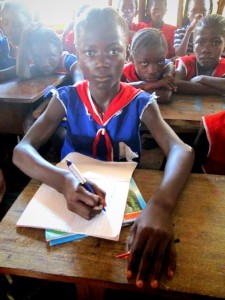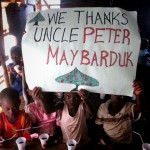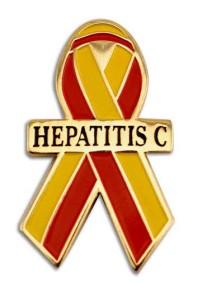Public Citizen’s Facebook Live segment on EpiPen:
Category: Projects
On Service and Justice
The Office of Community Engagement at The College of William & Mary invited me to speak at the Active Citizens Conference this year, which gathered about two hundred students and faculty from a number of states. I spoke about the relationship between service work and justice work, drawing on my own experiences as a student at William & Mary and our more recent work on the Trans-Pacific Partnership. Here are a few minutes from the conclusion of conclusion of my talk.
Por el Derecho a la Salud en Ecuador
A Spanish-language interview with ANEPI, a news service of Ecuador’s public agencies, about a national policy on patents and access to medicines which we helped develop.
Op-ed with Representative Schakowsky
 Representative Jan Schakowsky (Democrat of Illinois) and I have an op-ed in The Hill about how U.S. government proposals in closed international trade negotiations are risking lives in developing countries, while undermining pledges to reduce cancer drug costs here in the United States. Read the op-ed here.
Representative Jan Schakowsky (Democrat of Illinois) and I have an op-ed in The Hill about how U.S. government proposals in closed international trade negotiations are risking lives in developing countries, while undermining pledges to reduce cancer drug costs here in the United States. Read the op-ed here.
A Sierra Leonean School of Hope
 In Sierra Leone, state collapse and resource shortages mean that many students cannot attend school unless their parents can afford the user fees. In the town of Adonkia, children bare the scars of working stone mines instead. A man named Foday Mansaray started a free school to help kids out of the mines. Foday calls it the Borbor Pain Charity School of Hope. We are helping him build it. Read more.
In Sierra Leone, state collapse and resource shortages mean that many students cannot attend school unless their parents can afford the user fees. In the town of Adonkia, children bare the scars of working stone mines instead. A man named Foday Mansaray started a free school to help kids out of the mines. Foday calls it the Borbor Pain Charity School of Hope. We are helping him build it. Read more.
A Sierra Leonean School of Hope
Gallery

This gallery contains 8 photos.
Families crouch around piles of small stones in the dusty hills of Adonkia, outside the West African city of Freetown. Each pile has been broken down from boulders lodged in the hills, which laborers extracted and cracked using fire and … Continue reading
Public Citizen vs. PhRMA
 We square off with PhRMA, the trade group for the multinational
We square off with PhRMA, the trade group for the multinational  pharmaceutical giants, in letters to The New York Times this week. At stake is treatment rationing, particularly for Hepatitis C. Will those who need treatment receive it?
pharmaceutical giants, in letters to The New York Times this week. At stake is treatment rationing, particularly for Hepatitis C. Will those who need treatment receive it?
“A Neglectful Response to Ebola”
My father, Gary H. Maybarduk, has a letter in The Washington Post today, concerning what he considers to be the U.S. Government’s lost opportunity to respond in timely, effective fashion to Ebola in West Africa — and what we can do now to help curb exponential transmission.
My father  served as Deputy Chief of Mission for the U.S. Government in Sierra Leone from 1988-1991, which included the Liberian refugee crisis and an invasion tied to the regional war, and as political and economic officer in Cuba in 1998-1999. Soon after ebola cases started appearing this year he pitched the government of Sierra Leone on the idea of requesting U.S. Army field hospitals and Cuban medics. He enlisted some high-ups in the U.S. and Sierra Leone to help the cause. Sierra Leone took the advice, and Cuban medics are there now.
served as Deputy Chief of Mission for the U.S. Government in Sierra Leone from 1988-1991, which included the Liberian refugee crisis and an invasion tied to the regional war, and as political and economic officer in Cuba in 1998-1999. Soon after ebola cases started appearing this year he pitched the government of Sierra Leone on the idea of requesting U.S. Army field hospitals and Cuban medics. He enlisted some high-ups in the U.S. and Sierra Leone to help the cause. Sierra Leone took the advice, and Cuban medics are there now.
Read my father’s letter here. You can also donate to Borbor Pain Charity School of Hope, a school we support outside Freetown, which operates for the poorest, takes no user fees, and is working hard to keep ebola out, here.
Barrio Adentro
 In 2004 I wrote about Venezuela’s contentious community healthcare program, Barrio Adentro, for The Multinational Monitor. I believe it was the first investigative article on the subject, or at least in English. Read it here.
In 2004 I wrote about Venezuela’s contentious community healthcare program, Barrio Adentro, for The Multinational Monitor. I believe it was the first investigative article on the subject, or at least in English. Read it here.
“It is nearly impossible to travel Venezuela without hearing reference to the government’s highly popular and controversial healthcare initiative that invites Cuban doctors to treat, train and live with working-class Venezuelans in communities across the country…”
Resist the Watch List
Business interests lobby the US government to bully developing countries into changing their economic laws and practices so as to favor the commercial interests of multinationals. Unfortunately this can come at the expense of health, education and other sensitive public interests. We are countering the corporations’ analysis and arguing for a more independent US government policymaking that defends global health.
For example, I testified at a recent hearing by the US Trade Representative, criticizing the US Government’s Special 301 “Watch List.” At stake is India’s key role helping facilitate global access to affordable medicines. Read more here.

